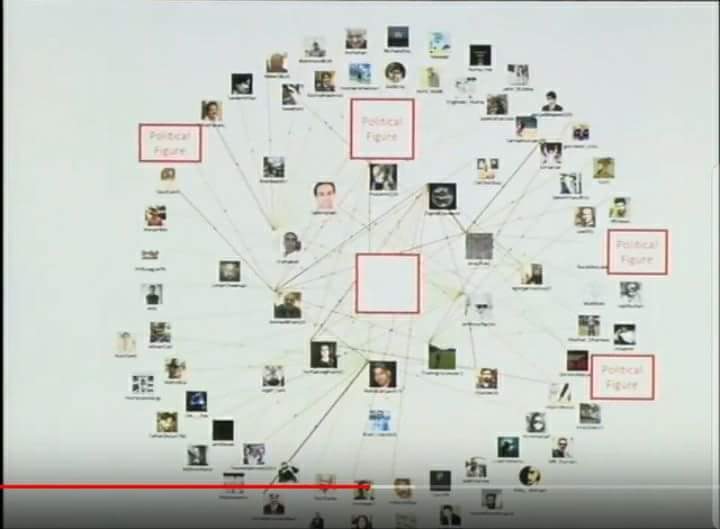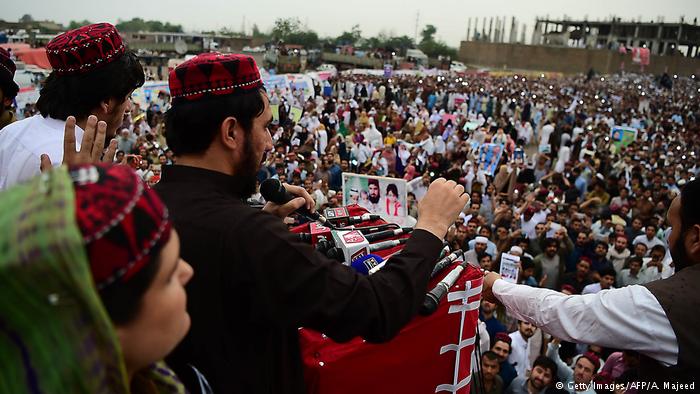Every Pakistani reporter, blogger and columnist knows that Big brother is watching them. Amnesty international’s recent report of May 2018 “Pakistan: Human rights under surveillance,” shows how human rights activists in Pakistan have been targeted and their computers and accounts hacked. Global media watchdogs like Committee to Protect Journalists (CPJ) and Reporters Without Borders have consistently spoken about “overt press censorship” in Pakistan. Pakistan’s human rights watchdog HRCP also issued a recent statement titled “No room for dissenters” in which it expressed “grave concern over the increasing frequency and ‘sheer impunity’ with which anyone critical of the state is being targeted.”
On June 4 at a press conference on Monday June 4, DG ISPR spoke about “censorship on media reportedly at the behest of security establishment. He said he maintained contacts with media owners and all the journalists.” According to media reports: DG ISPR “said the army had never tried to dictate any media group or journalist to report according to their wishes. He expressed his gratitude to the local media, which, he said, often reports keeping in mind the country’s larger interest. Maj Gen Ghafoor raised serious questions over the use of social media to propagate certain message against Pakistan and its institutions.”
What was worrying was that the DG also “showed a chart featuring how certain individuals re-tweet anti-Pakistan content. Interestingly, the list includes certain political figures, whose identities were not shared, and some media personalities. Names of some journalists on the chart drew strong reaction on social media with some calling it an open threat to those who do not subscribe to the views of security establishment.”
The chart is reproduced below from social media:

The Human Rights Commission of Pakistan expressed “strong disapproval’ of the slide display of images and names of social media users and of branding them ‘anti-state’. ‘With less than two months to the elections,’ added the Commission, ‘an ominous pattern seems to be emerging: even the slightest expression of political dissent, especially by journalists and social media activists, can be labelled “anti-state”, often with worrying implications for their physical safety.”

One day before the press conference, several Pashtun ethnic rights activists were killed and at least 25 were wounded when their gathering in Wana was attacked by Taliban militants and security forces opened fire on protesters soon after. In a twitter post, Manzoor Pashteen, the head of the Pashtun Tahaffuz Movement (PTM), said “that at least 10 people died and 30 were wounded during Sunday’s violence. In his Twitter post, Pashteen described how Taliban fighters had first attacked the PTM gathering. Later angry protesters threw stones, prompting “indiscriminate” firing by security forces, he said.” According to Reuters story: “Some PTM members said they suspected the gunmen who attacked them belonged to a Taliban faction that has covert support from Pakistan’s powerful military.”

Just one day after this press conference well-known journalist and activist and vocal critic of the military establishment Gul Bukhari was abducted by unknown persons in Lahore while on her way to the studios of Waqt TV. According to a report in Dawn: Bukhari “was abducted on Sherpao Bridge in Lahore’s Cantonment area. Her family had reported her missing to the police. Punjab Police said Bukhari had not been detained by its personnel.”
Bukhari was freed in the wee hours of the following morning after outrage and concern expressed on social media by media watchdogs as well as the British High Commission in Pakistan.
According to a report in BBC: “Gul Bukhari was freed several hours after being abducted, her family said. There had been outrage from colleagues. She had been on her way to work when she was stopped late at night in the city’s army-controlled cantonment area. A colleague said men in “army uniforms” were present at the abduction, along with others in plainclothes. It comes after a spate of similar kidnappings. Ms Bukhari, who has dual Pakistani-British nationality, had been on her way to television studios to record a show on which she appears, when she was seized. “They put a black mask on her face and took her,” Muhammad Gulsher, a producer on the Waqt show, told Reuters news agency. A number of pick-up trucks had stopped her car, he also quoted her driver as saying. Where she was taken remains unclear.”
In its statement HRCP was “appalled at the recent abduction of Gul Bukhari, a journalist known for her views on law enforcement organizations. While Ms Bukhari was returned safely home within a few hours, the fact that she was summarily “picked up” from the Lahore Cantonment should make it clear that enforced disappearances are rapidly becoming the norm—an easy and arbitrary means of intimidating those who do not toe the line.’”
According to the human rights watchdog: “HRCP feels acutely that this election is critical—more so than before—to preserving the country’s fragile democratic order. The right to non-violent dissent is part of this democratic order. We strongly condemn any use of extra constitutional means to intimidate and harass citizens, or to put them in a position that might compromise their safety.”
![]()





